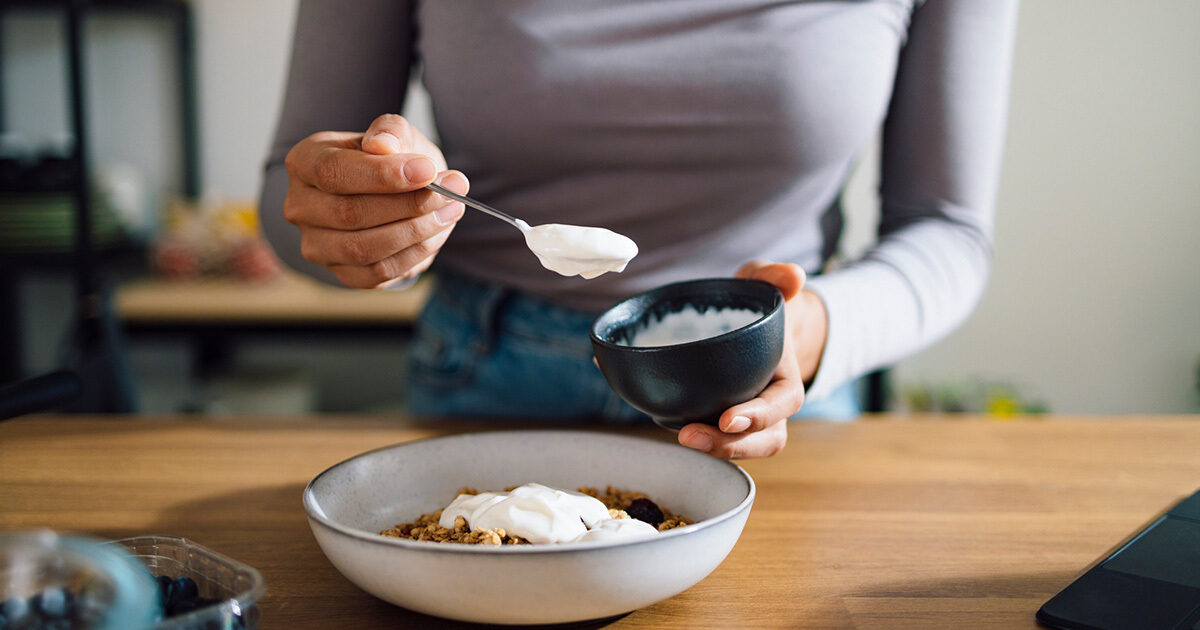Gut Check
UT Health Austin gastroenterologist breaks down claims surrounding gut health
Reviewed by: Kavitha Kumbum, MD
Written by: Lauren Schneider

No, it’s not just you. Videos touting the importance of a healthy gut are all over TikTok. To find the truth in the trends, we spoke to UT Health Austin board-certified gastroenterologist and hepatologist Kavitha Kumbum, MD, in Digestive Health, a clinical partnership between UT Health Austin and Ascension Seton.
The Gut Microbiome and You
The gut microbiome is defined as the bacteria and other microorganisms that reside in the gastrointestinal tract. Each person has a person has a unique gut microbiome, and a healthy balance of gut bacteria may boost immunity and protect against metabolic disorders and obesity. Recently, the gut microbiome has captured scientific attention in part for its role in the gut-brain axis, the two-way communication network between the digestive system and the nervous system. Disruptions to the gut-brain axis are thought to play a role in disorders such as irritable bowel syndrome (IBS), a condition characterized by chronic gastrointestinal discomfort.
“IBS is a common gastrointestinal disorder, and about 50% of our patients have this diagnosis,” says Dr. Kumbum. “In the more recent years, there’s been a dramatic change in the understanding of the gut and brain in IBS based on new information about the gut microbiome.” Possible ways an individual’s gut microbiome could contribute to IBS symptoms include effects on intestinal motility, the sensitivity of your gastrointestinal organs (particularly the colon), and inflammation.
As the gut microbiome and the nervous system are known to interact, a rapidly emerging field of research centers on how a healthy microbiome might boost mental health. Certain probiotic supplements, which increase the levels of “good” bacteria, lower anxiety and improve mood in individuals with and without depression. “Even though there’s been a lot of research in this area,” shares Dr. Kumbum, “I think we still have not touched the surface of understanding what our gut microbiota can do to our overall health, including our mental health.”
The gut microbiome clearly has a powerful role in keeping us healthy; however, not every claim on social media is to be believed. “If you hear about something that is too good to be true, it probably is not true,” cautions Dr. Kumbum. She recommends validating health information through online resources such as the Centers for Disease Control and Prevention (CDC), Food and Drug Administration (FDA), and National Institutes of Health (NIH) websites and consulting your physician or other subject matter experts.
Promoting a Bacterial Balance
While the exact relationships between the gut and the rest of the body may not be known for years to come, people can reap the benefits of a healthy gut microbiome today. Foods including yogurt, sauerkraut, and kimchi are a good source of probiotics, the healthy bacteria that can promote gut health. Prebiotics, nutrients that promote the flourishing of healthy probiotic, can be found in fiber-rich foods like whole grains and greens. In addition to these food sources, probiotics and prebiotics are both widely available as dietary supplements.
There is no one-size-fits-all approach to gut health. “The gut microbiome is different for everybody and the more diverse your gut microbiome is, the better it is,” explains Dr. Kumbum. “Simply taking a probiotic supplement is not going to fix all the problems. Eating a healthy variety of foods and getting regular exercise are just as important as getting a supplement or a prescription from your doctor for maintaining your gut health.”
For more information about Digestive Health or to schedule an appointment, call 1-844-GI-AUSTIN (1-844-442-8784) or visit here.